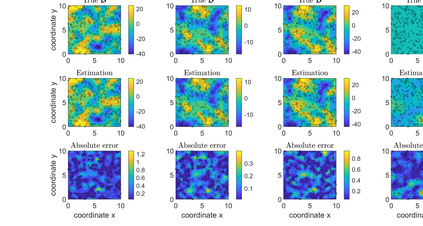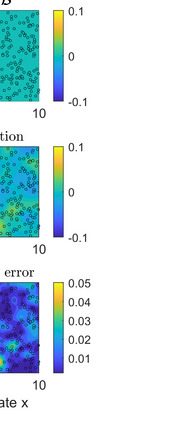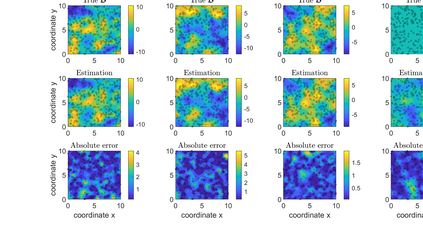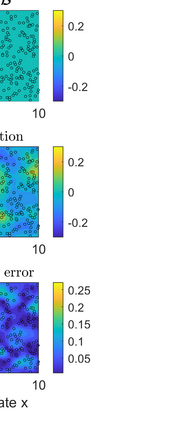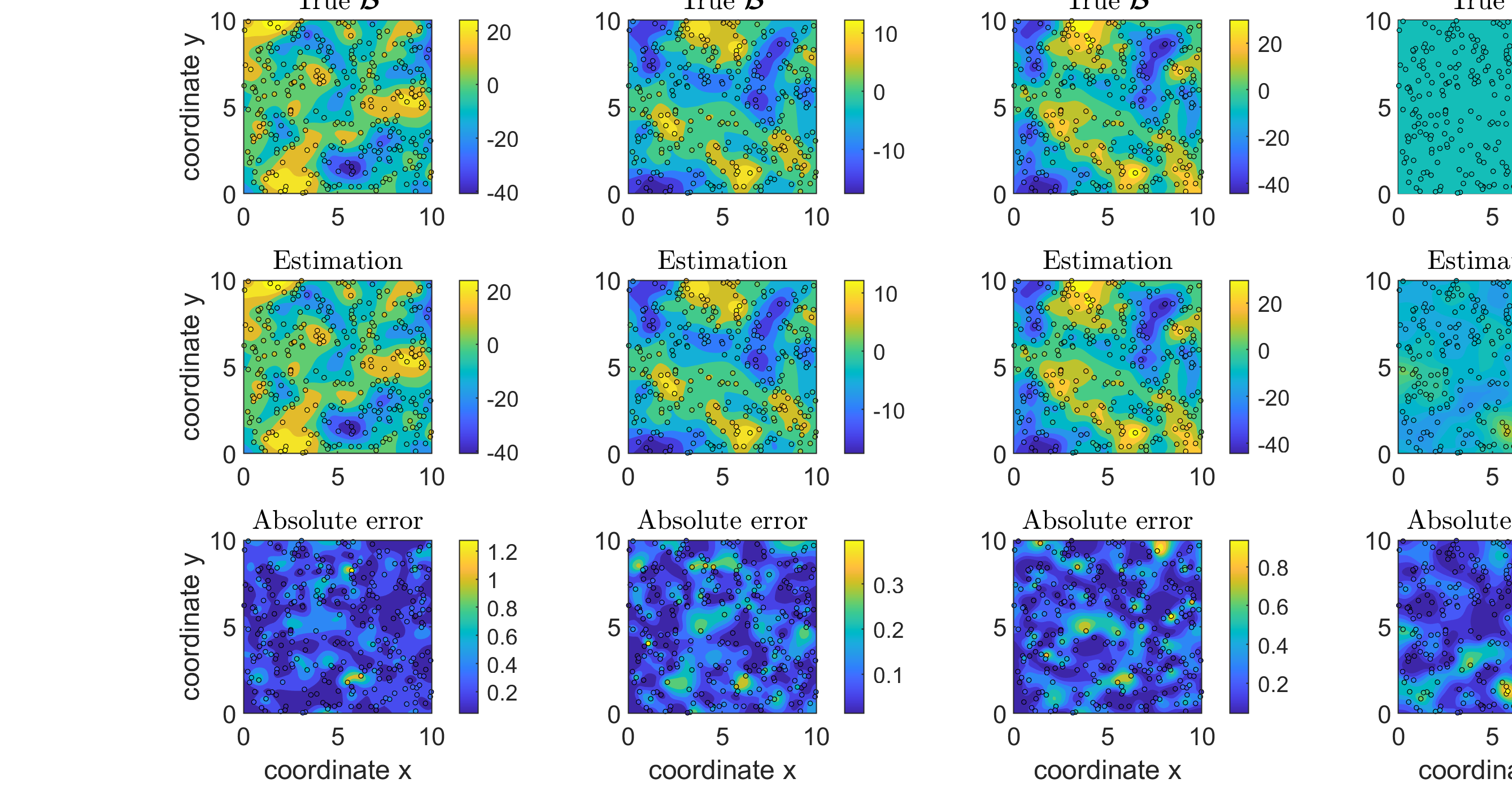As a regression technique in spatial statistics, the spatiotemporally varying coefficient model (STVC) is an important tool for discovering nonstationary and interpretable response-covariate associations over both space and time. However, it is difficult to apply STVC for large-scale spatiotemporal analyses due to the high computational cost. To address this challenge, we summarize the spatiotemporally varying coefficients using a third-order tensor structure and propose to reformulate the spatiotemporally varying coefficient model as a special low-rank tensor regression problem. The low-rank decomposition can effectively model the global patterns of the large data sets with a substantially reduced number of parameters. To further incorporate the local spatiotemporal dependencies, we use Gaussian process (GP) priors on the spatial and temporal factor matrices. We refer to the overall framework as Bayesian Kernelized Tensor Regression (BKTR). For model inference, we develop an efficient Markov chain Monte Carlo (MCMC) algorithm, which uses Gibbs sampling to update factor matrices and slice sampling to update kernel hyperparameters. We conduct extensive experiments on both synthetic and real-world data sets, and our results confirm the superior performance and efficiency of BKTR for model estimation and parameter inference.
翻译:作为空间统计的回归技术,零星变化系数模型(STVC)是发现空间和时间上非静止和可解释的响应共变协会的一个重要工具,然而,由于计算成本高,很难应用STVC进行大规模时空分析,因为计算成本高,我们很难将STVC用于大规模时空分析。为了应对这一挑战,我们用第三阶高温结构来总结零星变化系数,并提议将随机变化系数模型改写为一个特殊的低级高压回归问题。低级别分解可以有效地模拟大型数据集的全球模式,同时大幅降低参数数量。为了进一步纳入局部的时空依赖性分析,我们使用高斯进程(GP)在空间和时空要素矩阵上之前使用。我们提到作为贝耶斯-凯尔内化天体回归模型(BKTR)的总体框架。关于模型,我们开发高效的Markov连锁蒙特卡洛(MC)算法,它利用GGS采样取样来更新要素矩阵基质基质矩阵和合成标准,以更新我们全球的高级数据基数,并更新我们的高级数据测度测算结果。

